The comprehensive landscape of Blockchain and AI, along with the latest applications in the medical field—ranging from disease diagnosis, medical records management, drug research and development, and supply chain tracking of medical supplies, to treatment support—was shared by experts from the Academy of Blockchain and Artificial Intelligence Innovation (ABAII) with more than 400 students and faculty members of Pham Ngoc Thach Medical University.
Before the program began, experts, speakers, guests, faculty members, and students of Pham Ngoc Thach Medical University observed a one-minute silence in memory of General Secretary Nguyễn Phú Trọng (born in 1944, passed away on July 19, 2024), to honor and acknowledge his immense contributions to the country’s development.
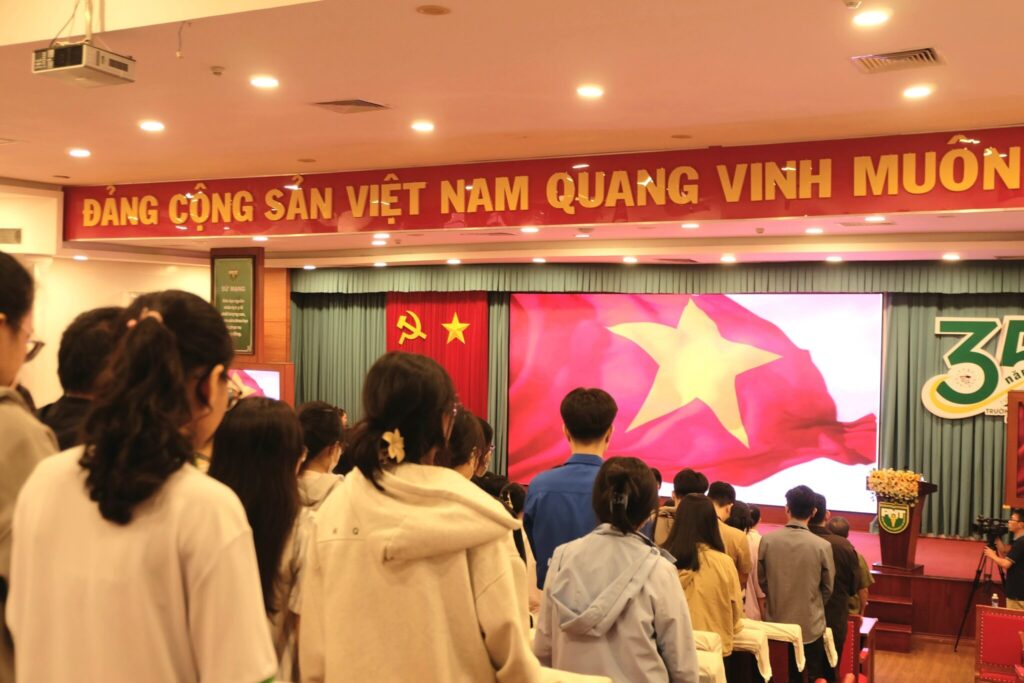
On July 20, 2024, the Vietnam Blockchain Association, the Academy of Blockchain and Artificial Intelligence Innovation (ABAII), in collaboration with Pham Ngoc Thach University of Medicine in Ho Chi Minh City, organized a seminar titled “The Global Landscape of Blockchain & AI: Applications in Healthcare,” with over 400 students and faculty members in attendance.
At the beginning of the program, Mr. Đào Trung Thành, Deputy Director of the ABAII Academy, shared new insights and the latest information on how AI is transforming the world. According to Mr. Thành, AI is making tremendous advancements, significantly impacting not just one but all sectors, including the economy, healthcare, culture, and education. “The rapid development of AI, while presenting numerous challenges that need to be addressed, such as ethical issues and managing data security risks, is, overall, still a progressive tool and a valuable companion for students in general, medical students in particular, and future doctors and healthcare professionals,” Mr. Thành emphasized.
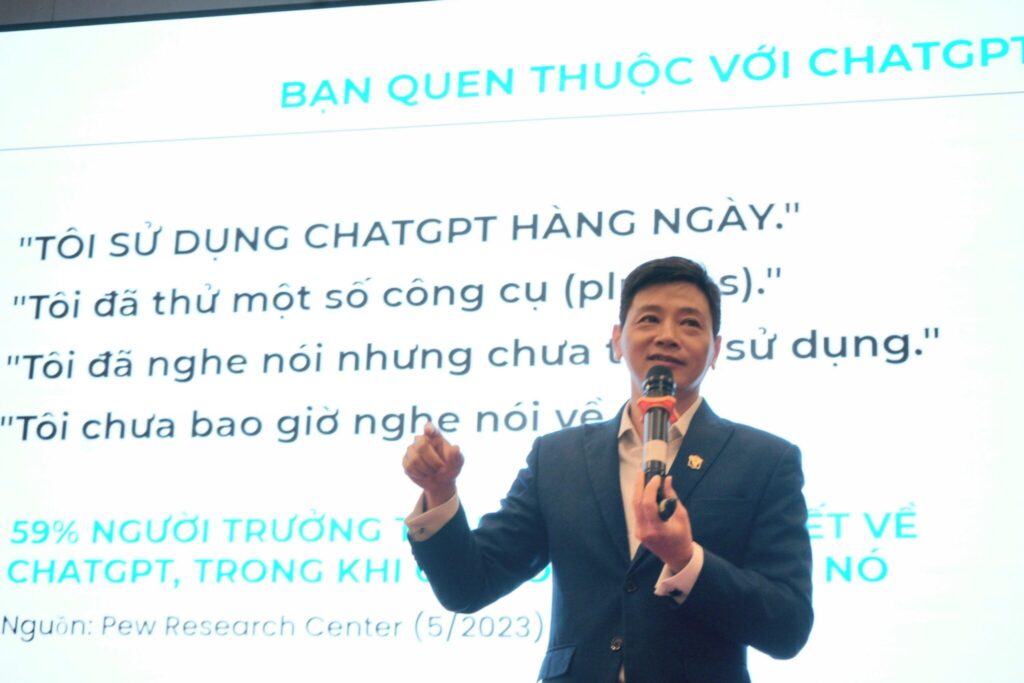
Mr. Thành noted that a Harvard School of Public Health study indicates that using AI for diagnosis can reduce treatment costs by up to 50% while improving health outcomes by up to 40%. According to the University of Hawaii, the deployment of deep learning AI technology improves the accuracy of predicting breast cancer risk, as the AI algorithm is trained on a database of millions of images, far exceeding the research and reception capabilities of radiologists. Notably, healthcare facilities can reuse the algorithm without incurring additional costs, except for hardware.
Sharing insights on the broader picture of Blockchain and its notable applications in education and medical research, Mr. Trần Dinh, Chair of the Fintech Applications Committee at the Vietnam Blockchain Association, emphasized the role and real-world impacts that this technology has had and continues to have in transforming the healthcare and medical fields on a global scale.
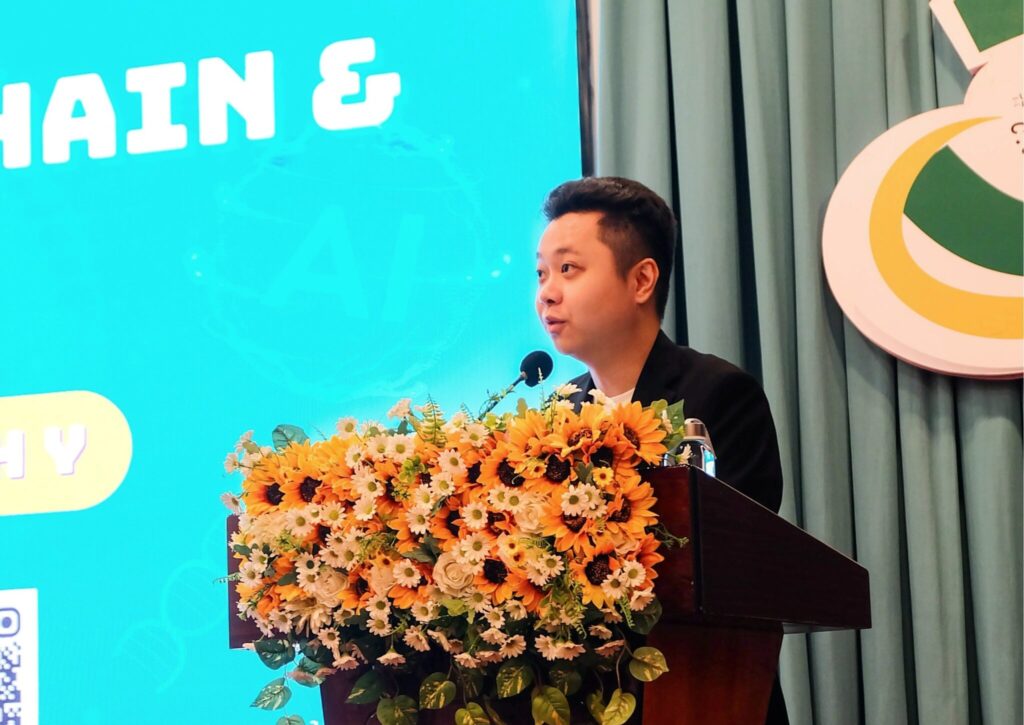
According to Mr. Trần Dinh, “In the healthcare sector, Blockchain technology is applied in various activities such as health record management, tracking and managing the pharmaceutical supply chain, electronic health insurance, sharing and storing medical research data, among others. A report from Grand View Research shows that the market size for healthcare applications of Blockchain technology was estimated to reach over 7 billion USD in 2023, and it will continue to grow at a compound annual rate of 63.3% from 2024 and is projected to surpass 215 billion USD by 2030.”
Following the program, a panel discussion among experts on the application of Blockchain and AI in healthcare, particularly regarding ethical issues, garnered significant interest from the audience. The session featured lively and challenging questions from the students attending the event in person.
Opening the discussion session, Associate Professor, Dr. Trần Thị Khánh Tường, Head of the Faculty of Medicine and Head of the Department of General Internal Medicine at Pham Ngoc Thach University of Medicine, shared the positive impacts that AI and Blockchain can bring to the healthcare sector, such as medical record management, tracking the origin and circulation of pharmaceuticals, as well as the barriers related to technology infrastructure, awareness, and legal frameworks in applying these two technologies in Vietnam’s healthcare industry. According to Associate Professor Khánh Tường, Pham Ngoc Thach University of Medicine is highly interested in applying Blockchain and AI in healthcare and is also researching to implement training programs that equip students with additional knowledge and skills in the context of rapidly changing technology.
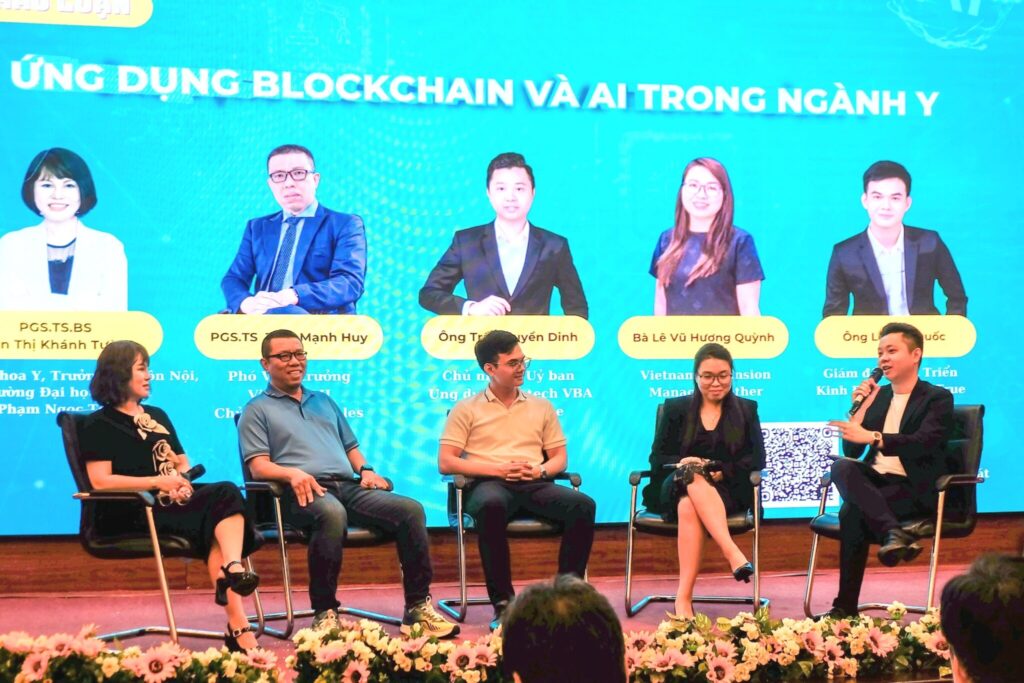
Associate Professor Dr. Trần Mạnh Huy, Deputy Director of the ABAII Academy and Chief Operating Officer of Rainscales, brought to the discussion session exemplary cases of applying AI technology to improve the diagnosis and patient care process. One example is eMagicEyes, an advanced AI platform for healthcare and life safety, which combines artificial intelligence and computer vision, developed by Rainscales with support from leading experts in the United States. This system offers the capability to detect and analyze movements, helping to enhance patient care, ensure safety for healthcare professionals, and improve management efficiency.
Associate Professor Dr. Huy stated, “Introducing AI into highly specialized tasks such as drug research or handling medical surgeries can lead to unfortunate consequences due to machine errors. Therefore, despite its vast potential, for fields like Medicine and Pharmacy, the application of AI requires caution and strict oversight from relevant authorities.”
Mr. Lê Anh Quốc, Business Development Director of Web3 Alpha True JSC, participated in the program as an alumnus of Pham Ngoc Thach University of Medicine. He shared his decision to transition into Blockchain—a field that may seem dry but is highly captivating. According to Mr. Quốc, the application of Blockchain in healthcare, compared to other industries, has fundamental differences in security, data access rights, legal regulations, and ethical standards.
Sharing the same positive attitude towards embracing the changes brought by technology, Ms. Lê Vũ Hương Quỳnh, Market Development Director for Vietnam at Tether, advised students to “view AI as a companion, not a competitor.” She also shared that Tether recently invested $200 million in BlackRock Neurotech—a company developing brain-computer interface (BCI) technology—highlighting the significant interest that tech companies have in AI within the healthcare sector.
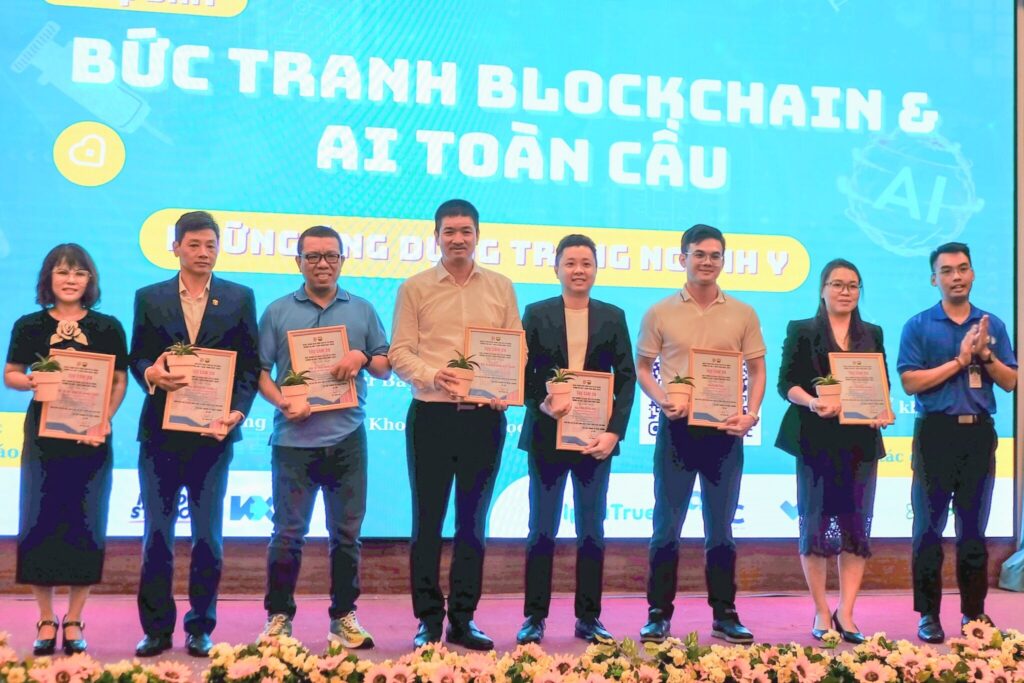
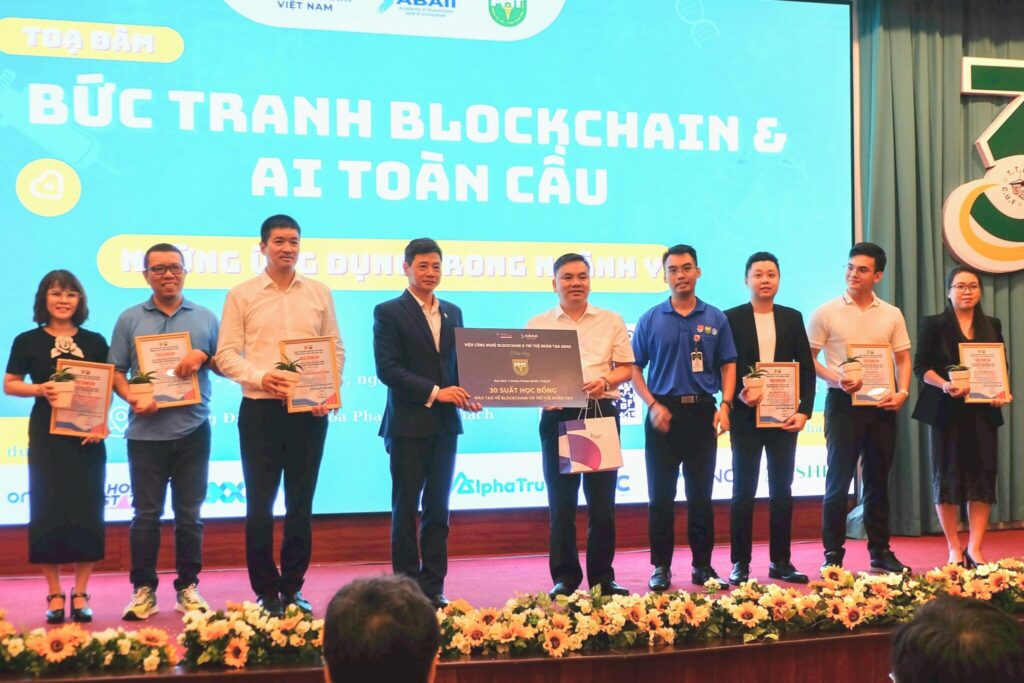
The seminar “The Global Landscape of Blockchain & AI: Applications in Healthcare” is the eighth event in the Unitour series—a program aimed at promoting Blockchain and AI at universities across the country. This initiative is being actively implemented by the Vietnam Blockchain Association and the Academy of Blockchain and Artificial Intelligence Innovation, alongside other social projects such as the free legal assistant app “AI Law Lookup,” the Chain Tracer program for tracking projects with fraudulent signs, and a series of specialized seminars on Fintech, Tokenized Real-World Assets (RWA), Decentralized Finance (DeFi), Decentralized Social Networks (SocialFi), Decentralized Infrastructure (DePIN), and more.
